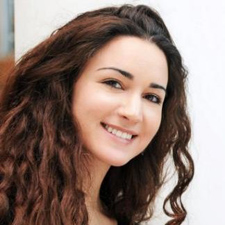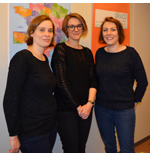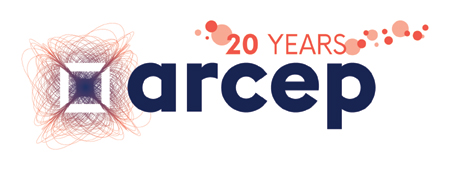 |  Welcome to the conversation era Welcome to the conversation era
Facebook Messenger has more active daily users than the Facebook app itself. Alexa and other voice-controlled assistants are taking up residence in the homes of millions of families.
65% of Europeans and Americans no longer download mobile apps. Most of us use only five apps on a regular basis. Social networking sites are saturated, as is our telephones’ memory. As screen time is becoming more duty than pleasure, and media and services’ business models are based more and more on their ability to capture and hold users’ attention, an alternative has already emerged: the conversation.
The exponential progress of artificial intelligence, users’ fatigue with the glut of apps and, more generally, the use of smartphones more as efficient tools and less as fun gadgets, has given rise to conversational interfaces, or rather non-interfaces. (…)
Continued
Marjolaine Grondin, CEO, Jam

|  |
 |
Regulation in action
Helping businesses: democratising fibre and helping French SMEs in their digital transition
Since 10 February, Arcep has been consulting with its ecosystem on draft market analyses, with the goal of redefining the rules governing fixed markets for the next three years. In the consultation document, Arcep notes a very insufficient degree of competition in the business market, and proposes a set of measures to create a truly competitive fibre market for small and medium enterprises, at a time when FttH networks are being deployed for the residential market.
Arcep wants to:
- create a lasting competitive fibre market for businesses through the emergence of a wholesale market populated by at least three suppliers;
- guarantee the availability of dedicated fibre plans for businesses, everywhere that FttH access is available;
- facilitate the development of higher quality products on FttH infrastructure, which are tailored to businesses’ multifarious needs.
In addition to the business market, these draft market analyses also aim to accelerate the pace of investment in and migration to superfast optical fibre networks across the whole of France.
The consultation on these documents will run until 15 March. The final decisions will be adopted in the second half of 2017.
Find out more
|  |
 |
|
On our radar
| |
Roxanne Varza
At the head of StationF, a new incubator in Paris that will open its doors in April, Roxanne Varza is also one of the 15 members of the European Commission’s newly created High level group of innovators, whose task is to help shape the design of a European Innovation Council. Find out more
| 
|
|
| |  | |
News from around the world
The United States: AT&T has pulled the plug on 2G!
AT&T’s 2G network in the United States was shut down in January. Why? The carrier wants to reassign all of the frequencies used for 2G to 3G and 4G LTE networks. AT&T thus plans on better serving new mobile behaviours and the connected objects sector which requires ever faster connections.
AT&T press release
|
| |
 |
Meanwhile, in Brussels...
Taking another step towards eliminating international roaming charges within the European Union
On 31 January, representatives of the European Parliament, Council and the European Commission reached an agreement over lowering the prices that mobile operators charge one another when their customers use other networks when travelling in another European Union countries.
These prices, also referred to as wholesale prices, will be capped as follows:
- 3.2 cents per minute of voice call, as of 15 June 2017;
- 1 cent per SMS, as of 15 June 2017;
- A step by step reduction over 5 years for data caps decreasing from €7.7 per GB (as of 15 June 2017) to €6 per GB (as of 1 January 2018), €4.5 per GB (as of 1 January 2019), €3.5 per GB (as of 1 January 2020), €3 per GB (as of 1 January 2021) and €2.5 per GB (as of 1 January 2022).
The Parliament’s formal adoption of this agreement in May will mark the final step needed to abolish the additional international roaming charges that users in the EU have to pay, and due to come into force on 15 June 2017.
European Commission press release

|  |
 |
Arcep, telling it like it is
 The annual report on the work performed by GRACO (the forum for discussions between Arcep and local authorities) has just been published. It is both a summary and a showcase of Arcep’s commitment to regional connectivity. It is the fruit of 12 months of work with the regions. Four times a year, Arcep meets with local authority representatives: invaluable opportunities for its teams to listen to local authorities’ needs and the challenges they are facing, at a time when connectivity has become a priority shared by citizens and elected officials.
The annual report on the work performed by GRACO (the forum for discussions between Arcep and local authorities) has just been published. It is both a summary and a showcase of Arcep’s commitment to regional connectivity. It is the fruit of 12 months of work with the regions. Four times a year, Arcep meets with local authority representatives: invaluable opportunities for its teams to listen to local authorities’ needs and the challenges they are facing, at a time when connectivity has become a priority shared by citizens and elected officials.
The production of this report, overseen by the “Smart regions” team, involved most Arcep departments, and seeks to answer local authorities’ queries and requests regarding copper networks, optical fibre, the business market, universal service, mobile coverage… Instructional and a veritable support tool for players in the field, this document is the physical expression of the whole of Arcep’s consideration of the issues that are specific to the regions, and of working together with them to construct regulation.
The report
Agnès Domergue, Anouk Arzur et Camille Bourguignon
"Connected Territories" Team
|  |
 |
Mark your calendar

Arcep’s 20th anniversary
Arcep will be celebrating its 20th anniversary in 2017! To mark the occasion, Arcep and the Independent Regulators Group (IRG) will be co-hosting an international conference on the topic “RegTech is the New GovTech: reinventing regulation”, on the afternoon of 22 February in Paris.
The line-up will include:
- Jean Tirole, Winner of the Nobel Memorial Prize in Economics;
- Cédric Villiani, Fields Medal winner;
- A debate on “Hacking regulation through data”, with Nick Grossman, author of ”Regulation, the Internet Way”, Laure Lucchesi, Director of Etalab, and Primavera de Filipi, researcher at CERSA and Harvard University;
- Matthew Kirk (Vodafone), Alejandra de Iturriaga Gandini (CNMC, Spanish regulator), William Webb (ex-Ofcom, Weightless SIG, and Webb search);
- Yochai Benckler (Harvard University, author of “The Wealth of Networks”).
By invitation only
The entire symposium will be live streamed: http://video.arcep.fr/en/20-ans-de-l-arcep
The programme
|  |
 |
27 February to 2 March in Barcelona
Mobile World Congress
31st edition of the biggest trade show in the world devoted to mobility, hosted annually by the GSM Association! The entire mobile industry will gather in Barcelona for four days to unveil their latest innovations in mobility, the Internet of Things, etc. Arcep Chair Sébastien Soriano will be there, and taking part in several events being organised by the GSMA.
Find out more
| |

|

